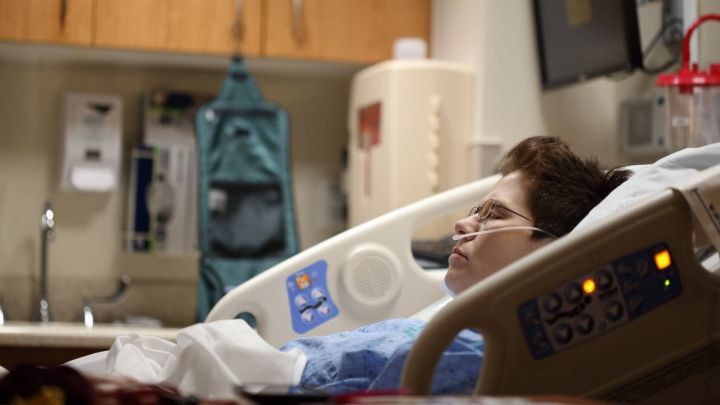Disease
How Confirm The Diagnosis Of Highly Differentiated Cholangiocarcinoma With Lymph Node Metastasis? How To Treat Highly Differentiated Cholangiocarcinoma With Metastatic Lymph Nodes?
Diseases have certain effects on the body, so it is necessary to learn more about common diseases so that you will know how to diagnose them when symptoms occur.

Diseases will affect the body to a certain extent, so it is necessary to learn more about common diseases so that when symptoms occur in the body, we will know how to confirm the diagnosis. How to treat highly differentiated cholangiocarcinoma with metastatic lymph nodes?

1,How to confirm the diagnosis of highly fractionated cholangiocarcinoma lymph node metastasis
To confirm the diagnosis of highly fractionated cholangiocarcinoma lymph node metastasis, patients need to undergo physical examination and laboratory tests. The physical examination is a way for the doctor to make an initial judgement on the metastasis of highly fractionated cholangiocarcinoma, so we must be careful to cooperate with the doctor and give details of the hidden symptoms that we have and when they occurred.

Laboratory tests for patients with highly differentiated cholangiocarcinoma with lymph node metastases include liver function and coagulation function as well as tumour markers and routine blood tests, which are performed to understand the physical condition of patients with highly differentiated cholangiocarcinoma with lymph node metastases and whether there are any abnormalities? In order to ensure the accuracy of the test results, patients with lymphatic metastases from highly fractionated cholangiocarcinoma must go to regular medical institutions for laboratory tests, so as to avoid misdiagnosis, as misdiagnosis will lead to delayed treatment of patients with lymphatic metastases from highly fractionated cholangiocarcinoma, which will lead to gradual aggravation of the disease.
In addition, some patients with highly differentiated cholangiocarcinoma lymphatic metastases require positron emission computed tomography or duodenoscopy and transendoscopic retrograde cholangiopancreatography, and some patients with more complicated disease states require pathology. These tests are used to determine the disease status and treatment options for patients with lymphatic metastases from highly differentiated cholangiocarcinoma.

2,How to treat lymph node metastases from hyperfractionated cholangiocarcinoma
The treatment modalities commonly used for highly differentiated cholangiocarcinoma lymph node metastases include surgery and radiotherapy, as well as targeted therapy and immunotherapy, because the disease status of patients with highly differentiated cholangiocarcinoma lymph node metastases varies greatly, so the appropriate treatment modalities are also different. Some patients can be treated with a single treatment, while others require multiple treatments to improve the disease.

It is important to maintain a healthy lifestyle in order to prevent the disease from occurring, but it is important to seek immediate medical attention if abnormal symptoms occur.
-
![]()
![]() DiseaseMar 01, 2026
DiseaseMar 01, 2026What Are The Causes Of Nasopharyngeal Carcinoma? What Are The Treatment Options For Nasopharyngeal Carcinoma?
-
![]()
![]() DiseaseFeb 28, 2026
DiseaseFeb 28, 2026Uremia Is Most Likely To Be "Dragged Out", The Body Appears 3 "Abnormal", Check As Soon As Possible
-
![]()
![]() DiseaseFeb 27, 2026
DiseaseFeb 27, 2026How Is Bile Duct Cancer Caused? How Does Bile Duct Cancer Need To Be Treated?
-
![]()
![]() DiseaseFeb 26, 2026
DiseaseFeb 26, 2026What is "Youth Dementia"
-
![]()
![]() DiseaseFeb 25, 2026
DiseaseFeb 25, 2026What Will Happen If You Don't Treat Your Piles?




